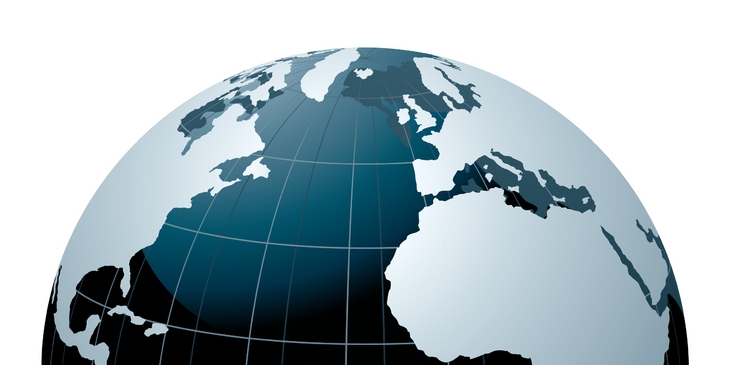
The geopolitics of 2026
History is traced not is straight lines but in jagged and discontinuous strokes. But what if the future follows a more predictable path? By 2026, China's economy will be bigger than America's, and India's will be much larger than that of any individual European country (Russia, Brazil and Indonesia will not be far behind). The press will be full of articles about "Asian values" and the "Beijing consensus". As these countries develop, so will their voracious appetite for natural resources and human capital. There will be a fierce global scramble for oil, water and skilled labour.
But even the biggest powers will be vulnerable. The privatisation of destruction - with computer nerds able to wreck global havoc from their bedrooms and terrorists able to buy weapons of mass destruction in a global market - will allow groups of individuals to take on nation states. This vulnerability may encourage "defensive imperialism": powerful countries taking over states to prevent them serving as bases or breeding grounds for hostile groups.
As economic might shifts from the north and west to south and east, so will cultural power. The rise of al-Jazeera and Bollywood already means that the world no longer looks at things overwhelmingly through American eyes. Ancient civilisations like China and India will become more self-confident and will project their own ideas on to concepts such as democracy, freedom and the rule of law.
If these trends are taken to their logical conclusions 2026 will not see a new world order, but at least four. This quadripolar world would be split along two axes; between democracies and autocracies; and between countries seeking a balance of power and those that want a world organised around international law and institutions.
The most powerful pole will continue to be the American World, especially if it can embrace India. However, a falling dollar and an over-militarised global footprint could see America repel as much as it attracts. Traditional allies such as the European Union, Japan and South Korea will have less appetite for American leadership then they did during the cold war.
An expanded Eurosphere that includes Bulgaria, Romania, Norway, Switzerland, Turkey, Ukraine, the Balkans, Moldova, Belarus and Georgia will share a belief in democracy with the United States - but be alienated from it because of a habit of multilateralism. Around its core lie another 70 countries in the former Soviet block, the Middle East and Africa that are dependent on the Eurosphere for trade, aid and investment - and are gradually being drawn into the European way of doing things.
To Europe's east will lurk Russia and China, united by their autocratic systems. They will seek to use multilateralism to make the world safe for tyrants. Russia will try to stop the osmotic progress of European values through Eurosphere enlargement. China's economic growth will be a beacon for dictators who want to modernise without giving up power. China and Russia (with Kazakhstan, Kirgizstan, Tajikistan and Uzbekistan) will turn the Shanghai Co-opertation Organisation into an anti-G7 of countries that are repressive. They will also use their seats in multilateral institutions - occasionally manipulating the Eurosphere - to contain America.
The fourth pole will be the Faith Zone - defined neither by democracy not the rule of law. By 2026, secular Europe will increasingly be boxed in by a global religious revival. The Muslim world will be the front-line. While some countries in the Middle East - Lebanon, Palestine, Iran - develop a new strain of Muslim democracy, many won't manage to change their politics quickly enough to keep up with social demands. In Saudi Arabia, Egypt and Iraq corrupt elites will be swept away by Islamists with increasingly international connections.
Not all countries will be part of a sphere of influence. This will lead to a global battle to co-opt "swing countries". The contest will be intense, with varying players, in South-East Asia, Central Asia, the Caucasus and the Middle East. India could well be the biggest swing country.
The good news is that the quadrilateral world, for all its power struggles, is unlikely to resort to all-out war. True, there is a risk that the Faith Zone breeds extremists. But because of four spheres will be bound together by a single economic system - with the different poles frantically trading and investing with each other - the new balance of soft power will be relatively stable.
Mark Leonard was director of foreign policy at the Centre for European Reform (2005-2007)
